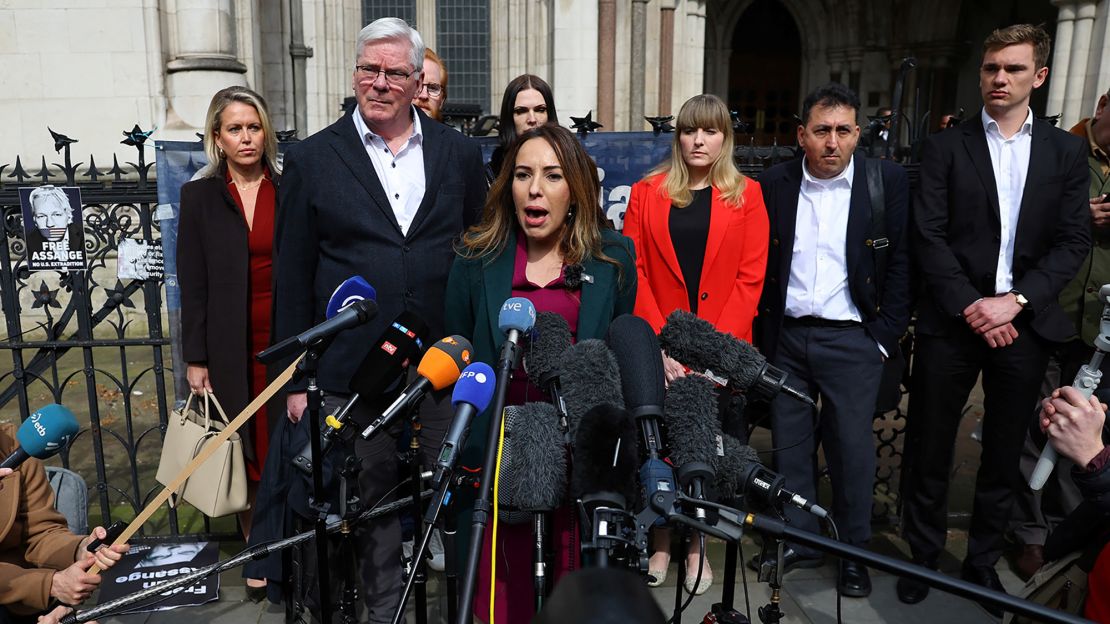Julian Assange staves off extradition to US for now, UK court rules
WikiLeaks founder Julian Assange has fended off the threat of immediate extradition to the United States after the High Court in London asked the US for more assurances.
US authorities say Assange, 52, put lives at risk by publishing secret military documents and have for years been seeking his extradition on espionage charges.
At a two-day hearing last month, Assange sought permission to appeal the UK’s 2022 approval of his extradition, arguing the case against him was politically motivated and that he would not face a fair trial.
In a ruling Tuesday, a panel of two judges said Assange, an Australian citizen, would not be extradited immediately and gave the US three weeks to give a series of assurances around Assange’s First Amendment rights, and that he would not receive the death penalty.
If the US fails to give these, Assange would be allowed to appeal his extradition at a hearing in May. The ruling potentially offers Assange an extraordinary lifeline in a years-long saga that saw him shoot to global prominence for revealing what he described previously to CNN as “compelling evidence of war crimes” committed by US-led coalition and Iraqi government forces.
Assange has fought extradition for the last five years from London’s Belmarsh prison, and for seven years before that was holed up as a political refugee at the Ecuadorian embassy in the UK capital.
His case has sparked condemnation from free speech advocates who say if his extradition is allowed it will have a chilling effect on press freedoms.
The court said on Tuesday that Assange had a “real prospect of success” on three of the nine grounds of appeal: that his extradition is incompatible with freedom of expression; that, if extradited, Assange might be prejudiced at trial due to his nationality; and that, if extradited, he would not enjoy adequate death penalty protection.
But the court refused to grant him leave to appeal on the ground that the prosecution is politically motivated. “The judge found, on the evidence, that Mr Assange had not shown that the request was made for the purpose of prosecuting him on account of his political opinions,” it said.
It said the judge had taken account of the evidence that the CIA had planned to kidnap Assange from the Ecuadorian Embassy, but the judge “concluded that this was not related to the extradition proceedings.”
Nick Vamos, head of business crime at Peters & Peters law firm and a former head of extradition at the UK’s Crown Prosecution Service, told CNN why some of Assange’s arguments were dismissed.
“Assange was not being prosecuted for journalism or for exposing grave State crimes, but for hacking and then publishing the names of sources who were put in serious danger,” he said.
“In short, journalists do not have immunity from prosecution for criminal conduct simply because that conduct is also a journalistic activity.”
Vamos added that he thought the US would have “little difficulty in providing these assurances” to the court, paving the way for Asssange’s extradition.
He said providing an assurance that Assange would not face the death penalty is “straightforward,” while the First Amendment assurance is essentially an issue of trial tactics.
Stella Assange, Assange’s wife, speaks to the media after Tuesday’s ruling in London. Toby Melville/Reuters
Stella Assange, Assange’s wife, told reporters outside the court after its ruling that her husband is a “political prisoner.”
Read more similar news:
Comments:
comments powered by Disqus



































